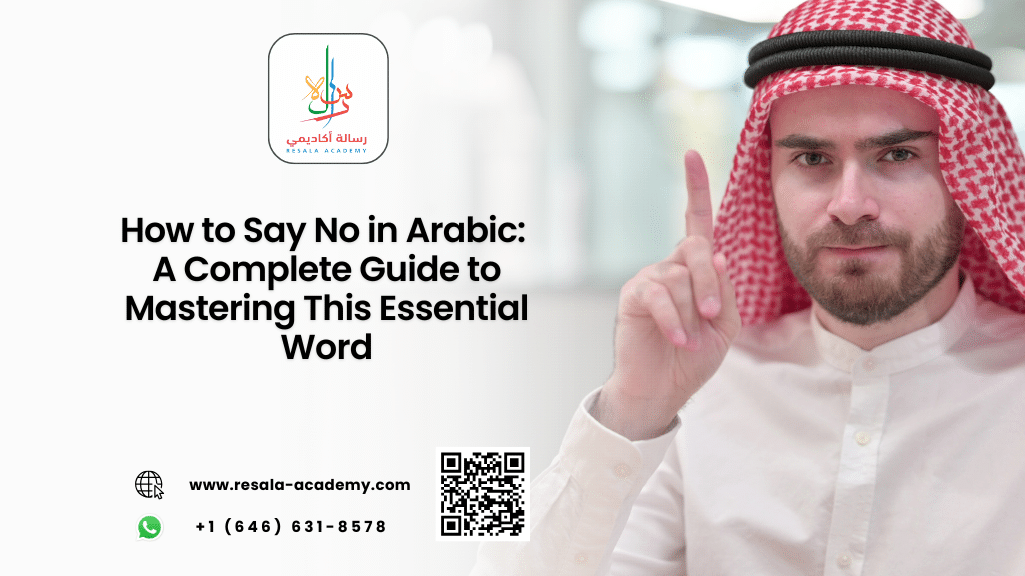Table of Contents
Mastering Meem Saakin Rules: A Comprehensive Guide for Quran Learners
Understanding the intricacies of Tajweed is essential for anyone striving to recite the Quran with precision and reverence. Among the foundational elements of Tajweed is the concept of Meem Saakin rules—a topic that holds great significance in the correct pronunciation and articulation of Quranic Arabic.
Whether you’re a beginner or an advanced learner, mastering these rules is crucial for enhancing your recitation and deepening your connection with the Holy Quran.
In this detailed guide, we’ll explore everything you need to know about Meem Saakin rules, including their types, applications, and examples from the Quran. This article is especially tailored for non-native Arabic speakers and students of Resala Academy, an online platform dedicated to teaching Arabic and Quran to learners from around the world.
What is Meem Saakin?
The term Meem Saakin (مِيمْ سَاكِنَة) refers to the Arabic letter “Meem” (م) when it carries a sukoon (ْ), meaning it is pronounced without a vowel. This silent meem can occur in the middle or at the end of a word and has specific rules of pronunciation depending on the letters that follow it.
Importance of Meem Saakin in Tajweed
In Tajweed, the rules of Meem Saakin are essential for preserving the phonetic beauty and accuracy of Quranic recitation. Mispronouncing these rules can alter meanings and disrupt the flow of the recitation.
The Three Main Meem Saakin Rules
There are three primary rules associated with Meem Saakin:
1. إِظْهَارُ الشَّفَوِي (Izhar Shafawi – Clear Pronunciation)
Izhar Shafawi occurs when the Meem Saakin is followed by any letter of the Arabic alphabet except for Meem (م) and Baa (ب). In this case, the meem is pronounced clearly without nasalization or merging.
Example from the Quran:
يُطْعِمُهُمْ مِّنْ جُوعٍ
“He feeds them against hunger”
Surah Quraysh (106:4)
View Verse
Here, the Meem Saakin in “يُطْعِمُهُمْ” is followed by the letter Jeem (ج), so it is pronounced clearly.
2. إِدْغَامُ مِثْلَيْنِ صَغِير (Idgham Mithlayn Sagheer – Merging of Two Similar Letters)
Idgham Mithlayn occurs when a Meem Saakin is followed by another Meem (م). In this case, the two meems are merged with ghunnah (nasal sound) for two counts.
Example from the Quran:
لَهُمْ مَّا يَشَاءُونَ
“There they will have whatever they desire”
Surah Qaf (36:57)
View Verse
Here, the first meem is saakin and is followed by another meem, so they are merged with a nasal sound.
3. إِخْفَاءُ الشَّفَوِي (Ikhfa Shafawi – Concealed Pronunciation)
Ikhfa Shafawi happens when the Meem Saakin is followed by the letter Baa (ب). The meem is then pronounced with a slight nasal sound, but not fully merged.
Example from the Quran:
يَعْلَمْ بِهَا
“He knows of it”
Here, the Meem Saakin in “يَعْلَمْ” is followed by Baa, so the sound is concealed with nasalization.
Visual Summary of Meem Saakin Rules
Rule Name | Trigger Letter(s) | Description | Nasal Sound |
Izhar Shafawi | All except ب and م | Clear pronunciation | No |
Idgham Mithlayn | م | Merge with nasal sound (ghunnah) | Yes |
Ikhfa Shafawi | ب | Concealed pronunciation with nasal sound | Yes |
Read more about: “Understanding Qalqalah Letters: A Key to Mastering Quranic Recitation”
Why Meem Saakin Rules Matter in Quran Recitation
Correct application of Meem Saakin rules ensures:
- Clarity of meaning: Mispronunciation can change the meaning of words.
- Fluency in recitation: Smooth transitions between words.
- Spiritual connection: Enhances the emotional and spiritual impact of recitation.
- Fulfillment of Sunnah: The Prophet Muhammad ﷺ emphasized the importance of proper recitation.
مَنْ قَرَأَ حَرْفًا مِنْ كِتَابِ اللَّهِ فَلَهُ بِهِ حَسَنَةٌ وَالْحَسَنَةُ بِعَشْرِ أَمْثَالِهَا
“Whoever recites a letter from the Book of Allah will receive one good deed as ten.”
— Hadith, Tirmidhi 2910
Specialized Insights into Meem Saakin Rules for Non-Native Learners
Phonetic Precision in Meem Saakin Rules
- Understanding the articulation points (makharij) is essential when applying the meem saakin rules. These rules rely heavily on the correct use of the lips (shafawiyyah), making them unique among Tajweed principles.
- Non-native speakers often struggle with distinguishing between clear and nasalized sounds, especially when transitioning between similar letters like meem and baa. Mastery of these distinctions ensures accurate recitation and prevents semantic distortions in Quranic verses.
Application of Meem Saakin in Daily Recitation
- The rules of meem saakin are not limited to isolated examples but appear frequently in daily recitations such as Surah Al-Fatiha, Surah Al-Ikhlas, and Surah Al-Baqarah.
- Recognizing and applying these rules during regular prayer enhances both fluency and spiritual presence.
- Structured practice, such as repeating verses with ikhfa shafawi or idgham mithlayn, reinforces muscle memory and builds confidence in Quranic pronunciation.
Common Mistakes in Meem Saakin and How to Avoid Them
❌ Skipping nasalization during Idgham and Ikhfa
❌ Overemphasizing the meem in Izhar
❌ Merging incorrectly in Idgham
✅ Practice with a qualified teacher
✅ Listen to expert reciters like Mishary Alafasy
✅ Enroll in structured Tajweed courses
How Resala Academy Can Help You Master Meem Saakin
Resala Academy is an online educational platform that specializes in teaching Arabic and Quran to non-native speakers. With certified instructors, flexible schedules, and interactive classes, Resala Academy is the perfect place to master Meem Saakin rules and other Tajweed principles.
Why Choose Resala Academy?
✅ Native Arabic-speaking teachers
✅ One-on-one and group classes
✅ Tajweed-focused curriculum
✅ Quran memorization programs
✅ Affordable pricing
Unlock the Secrets of Tajweed with Resala Academy
Are you ready to recite the Quran with confidence and clarity? Don’t let pronunciation mistakes hold you back from connecting deeply with the words of Allah.
Join thousands of students at Resala Academy who are transforming their recitation skills through expert-led Tajweed courses. Whether you’re just starting or looking to refine your skills, Resala Academy offers the tools, resources, and support you need to succeed.
Enroll Now and take your Quran recitation to the next level!
Frequently Asked Questions (FAQs)
1. What is the difference between Meem Saakin and Noon Saakin?
Meem Saakin involves the letter Meem (م) with sukoon, while Noon Saakin involves the letter Noon (ن) with sukoon. Both have their own set of Tajweed rules, but Meem Saakin rules are fewer and focus on labial articulation.
Learn more about Noon Saakin rules here
2. Can I learn Meem Saakin rules on my own?
While self-study is possible, it is highly recommended to learn under a qualified teacher to ensure correct pronunciation. Resala Academy offers expert-led classes that make learning easier and more effective.
3. How long does it take to master Meem Saakin rules?
With consistent practice and guidance, most students can master Meem Saakin rules within a few weeks. The key is regular recitation and feedback from experienced teachers.
4. Are there any apps or tools to help with Tajweed?
Yes, there are several apps like Tajweed Quran and Ayat that can aid in learning. However, nothing replaces the value of live instruction, such as that offered by Resala Academy.
5. What are some Quranic verses that emphasize correct recitation?
وَرَتِّلِ الْقُرْآنَ تَرْتِيلًا
“And recite the Quran with measured recitation.”
Surah Al-Muzzammil (73:4)
View Verse
This verse highlights the importance of Tajweed and proper pronunciation.
Conclusion
Mastering the Meem Saakin rules is a vital step in becoming proficient in Quranic recitation. These rules not only enhance pronunciation but also preserve the divine message of the Quran. For non-native speakers, learning these rules may seem daunting, but with the right guidance and structured learning, it becomes an enriching spiritual journey.
Resala Academy stands out as a beacon for students worldwide who aspire to learn Arabic and the Quran with authenticity and precision. Whether you’re a beginner or an advanced learner, their expert-led courses are designed to help you succeed.
Start your journey today and recite the Quran the way it was meant to be recited—with beauty, clarity, and devotion.




